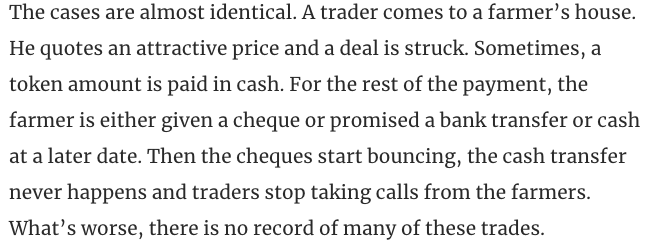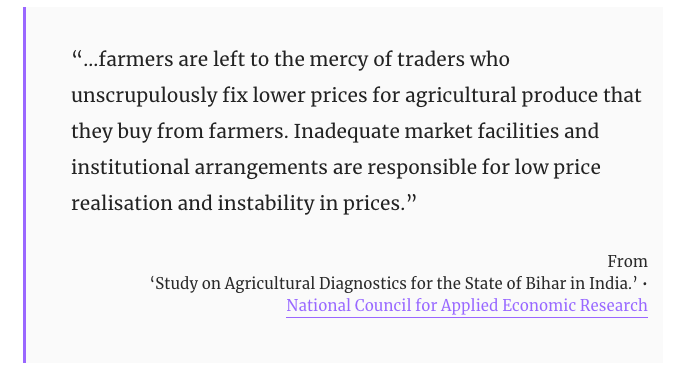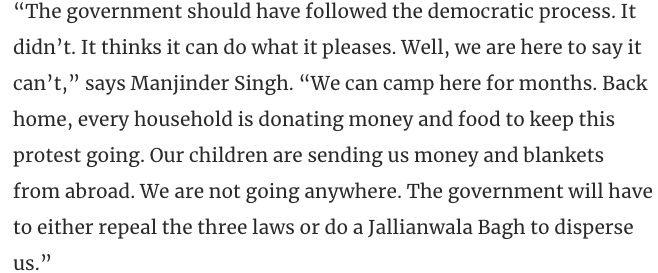Multiple reports of clashes are coming in as farmers march into Delhi. The clashes are the latest episode in their months-long protest against three farm laws. Here's all you need to know about the laws. From @MorningContext 1/n https://themorningcontext.com/chaos/when-farmers-did-not-flinch-from-a-good-fight
Hidden behind the facade of freedom and transparency are unfair advantages to private players, a lack of legal recourse for farmers, complete legal immunity for “anyone acting in good faith” and an ill-conceived attempt at deregulation without a fallback option. 2/n
Farmers want the government to repeal these three laws. They are not only worried about how these rules will play out in reality; they are also claiming that the government is rigging the market and playing into the hands of large corporate houses. 3/n
The farm laws repose unquestioning faith in private companies and argue that the inflow of private capital will augment farmers’ incomes. History has shown us that it never really happens. 4/n
“Our biggest fear is that we will not get our money,” says Sandeep Singhroha from Karnal in Haryana. “At least in the mandi, we are assured of getting paid on the spot. Who will be responsible if we don’t get paid outside?” 5/n
Two of the three bills--about creating independent private markets and on contract farming--give overriding legal immunity to anyone acting in good faith. All disputes are to be settled by the SDM and then an appellate authority. Farmers have no legal remedies. 8/n
There are many problems with the language of the laws but the way they were implemented--without consultation with agricultural leaders and without following a democratic process in Parliament--is probably the biggest problem yet. Here's what one farmer told me: 9/n
This story is free to read. Only on @MorningContext. Read and share. n/n https://themorningcontext.com/chaos/when-farmers-did-not-flinch-from-a-good-fight

 Read on Twitter
Read on Twitter




